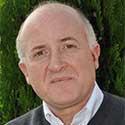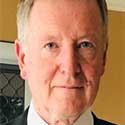Surgeons are at the forefront of innovation in healthcare. Professor Mohamed Khadra and Professor Neil Merrett reveal how surgeons are continually evolving to ensure surgery can achieve the best outcomes – for patients and the health system.
The stereotype of surgeons is that of a dogmatic, conservative group; slow to change and adopt new ideas. This is not true. Surgeons are trained to be problem solvers, adopting new ideas quickly, then adjusting their models of care.
An example is laparoscopic surgery. The first laparoscopic cholecystectomy (keyhole gall bladder removal) was performed in NSW in 1989. By 1992, almost 90% of gall bladders were removed by this method. This was a paradigm shift in clinical models of care with patients changing from having a large open operation, spending multiple days in hospital, to having a few small incisions in their abdomen and spending only 24 hours in hospital.
Surgeons can and do embrace change
Some operations do not result in meaningful benefits for all patients. Research by Professor Ian Harris, an orthopaedic surgeon, confirmed this for arthroscopy (knee investigations) in certain patient groups. This has changed the way orthopaedic surgeons use the procedure, with the support of their professional bodies.
Building on this research, surgeons are working with the Agency for Clinical Innovation (ACI) to identify, through national and international evidence and practice guidelines, other procedures that may not provide benefit to groups of patients. Examples include small asymptomatic hernias, asymptomatic gallstones or tonsillectomy without recurrent infections where research and international best practice indicates that the operation may have no benefit to the patient.
Additionally, we are aware from Australian data that there is great variability in where many procedures are being offered based on geography, socioeconomic status and ethnicity, which is raising issues of equity of care for patients.
Surgeons in NSW are taking the lead in identifying:
- the research that underpins benefits of procedures
- those patients and situations where an operation is beneficial
- those patient groups where the benefits may be marginal (or even illusory) or even detrimental to the patient
- where other techniques, including medicines and allied health treatment, may be used.
This project is being guided by the ACI, the Royal Australasian College of Surgeons (RACS) and the learned specialty societies around Australia; with input from international bodies, such as the UK National Health Service.
Improving outcomes for patients
Another aspect of the work being coordinated by ACI working with the Surgery and Anaesthesia Community of Practice is to ensure that patients, including those with chronic illnesses, are at their optimal condition so they can undergo surgery safely, without undue complications. This can be achieved by an assessment and prehabilitation program where, using a multidisciplinary approach, surgeons, anaesthetists, nurses and allied health professionals all review a patient to maximise their physical condition prior to undergoing surgery.
We are aware that many patients spend too long in hospital, which can result in increased complications, when care may be continued in a more comfortable home environment.
Using international research, protocols are being developed to support this approach, such as the Enhanced Recovery after Surgery (ERAS) Protocols being trialled in NSW. A further benefit of this is that shorter length of stay will free up that hospital bed for another patient who needs care.
Surgeons in NSW are continually evolving their practice and models of care as new findings and research come to light. This change is to benefit patients in NSW, ensuring good outcomes are maximised and patients get the right operation in the right place at the right time, no matter where they encounter the health system.
About Professor Mohamed Khadra
 Professor Mohamed Khadra is a professor of surgery at the University of Sydney and is Clinical Director for Surgery at the Nepean Hospital and Director of Strategy and Innovation for the Nepean Blue Mountains Local Health District. He is a member of the NSW Health Surgery Governance Committee and the Surgical Services Taskforce.
Professor Mohamed Khadra is a professor of surgery at the University of Sydney and is Clinical Director for Surgery at the Nepean Hospital and Director of Strategy and Innovation for the Nepean Blue Mountains Local Health District. He is a member of the NSW Health Surgery Governance Committee and the Surgical Services Taskforce.
About Professor Neil Merrett
 Professor Neil Merrett is the Foundation Professor of Surgery for Western Sydney University, the Program Director of Surgery for South Western Sydney Local Health District and a practising upper gastrointestinal surgeon. He has a strong research interest in patterns of care and variations in outcomes. He is a member of the NSW COVID-19 Clinical Council, the Surgical Community of Practice and Surgical Services Taskforce.
Professor Neil Merrett is the Foundation Professor of Surgery for Western Sydney University, the Program Director of Surgery for South Western Sydney Local Health District and a practising upper gastrointestinal surgeon. He has a strong research interest in patterns of care and variations in outcomes. He is a member of the NSW COVID-19 Clinical Council, the Surgical Community of Practice and Surgical Services Taskforce.